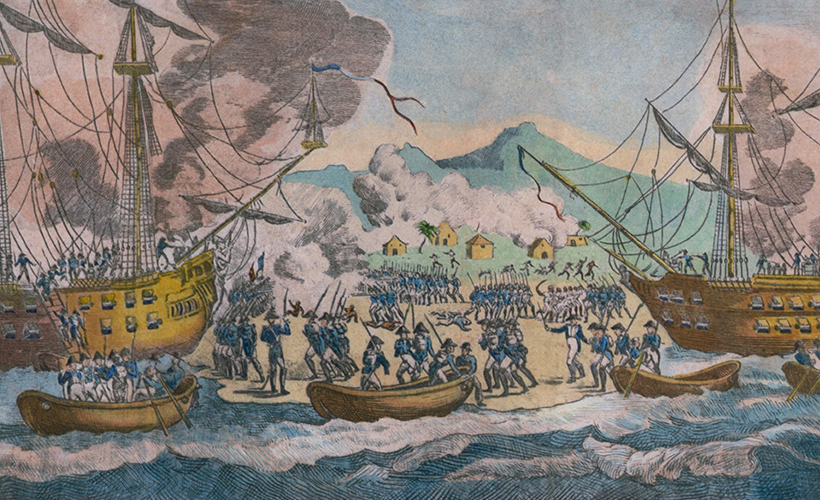Haitian Revolution: A Historical Controversy from Issues & Controversies in History

The Haitian Revolution: Did this uprising successfully advance or ultimately thwart the cause of human rights? Be sure to check out Issues & Controversies in History’s complete and unbiased coverage of this issue. Learn more about the issue and check out a sample of the pro/con arguments on both sides below.
THE ISSUE
In 1791, a slave rebellion broke out in Saint-Domingue, a French colony in the Caribbean. For the next 13 years, the people of Saint-Domingue fought for their freedom from their masters and for the colony’s independence from France. The Haitian Revolution, as it became known, resulted in the abolition of slavery and establishment of the independent nation of Haiti in 1804. However, it also introduced a harsh, new regime of forced labor and inequality. Did the Haitian Revolution successfully advance or ultimately thwart the cause of human rights?
| Arguments That the Haitian Revolution Successfully Advanced the Cause of Human Rights: | Arguments That the Haitian Revolution Ultimately Thwarted the Cause of Human Rights: |
| The Haitian Revolution ended slavery, racial inequality, and French colonialism in the Caribbean colony of Saint-Domingue. As the only victorious slave revolt in history, it set an example for oppressed people everywhere and successfully advanced the cause of human rights worldwide. | After the Haitian Revolution ended slavery, the island’s leaders implemented a system of forced labor and martial law. This new oppressive rule maintained racial and gender inequalities that restricted people’s lives and freedom. Despite its accomplishments, the Haitian Revolution ultimately thwarted the cause of human rights. |
Issues & Controversies in History links this pro/con article to rich related resources that enhance the debate. Students and researchers can delve into primary sources—including an emancipation proclamation issued in 1794, excerpts from the Haitian Declaration of Independence and Constitution, labor regulations and a proclamation issued by revolutionary leader Toussaint Louverture, and more—that provide context, a topic-specific timeline, a bibliography, and a thought-provoking “What if…” section that explores what might have happened if the Haitian Revolution had failed.
What Is Issues & Controversies in History?
Issues & Controversies in History is a multimedia solution for exploring compelling controversies and debate topics from U.S. and World history. Unbiased pro/con articles, primary sources, videos, and discussion questions help researchers analyze influential events of the past, assess and understand different views, and distinguish facts from opinions. It’s framework for informed inquiry supports critical thinking and unlocks understanding of historical conflicts and interpretations to empower effective communication about controversial topics.